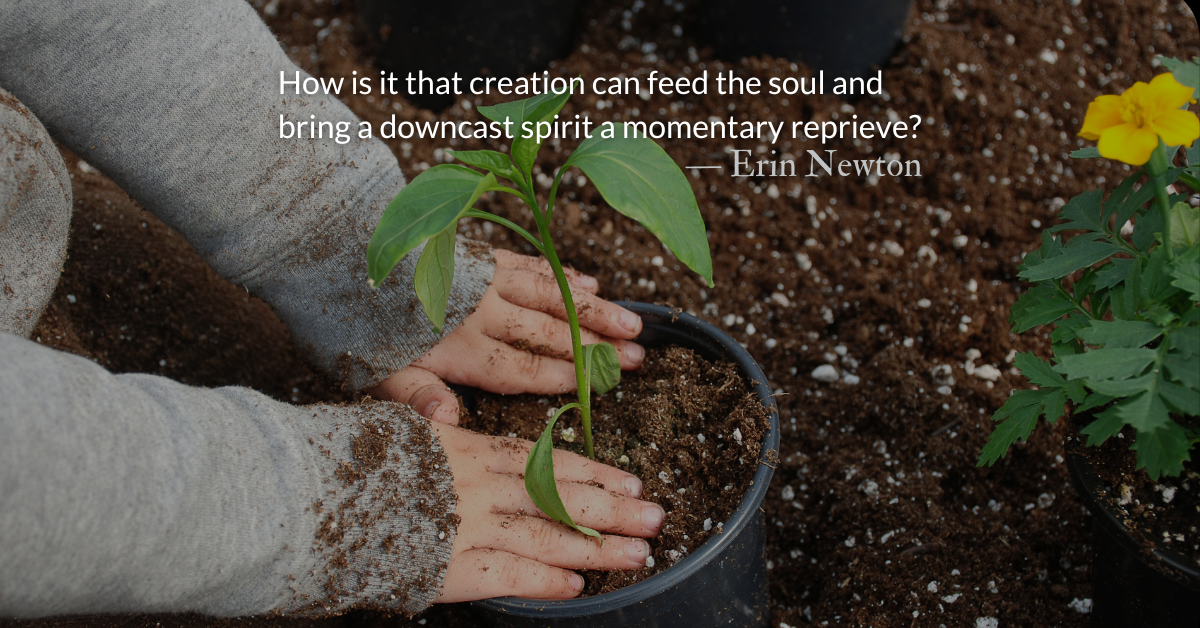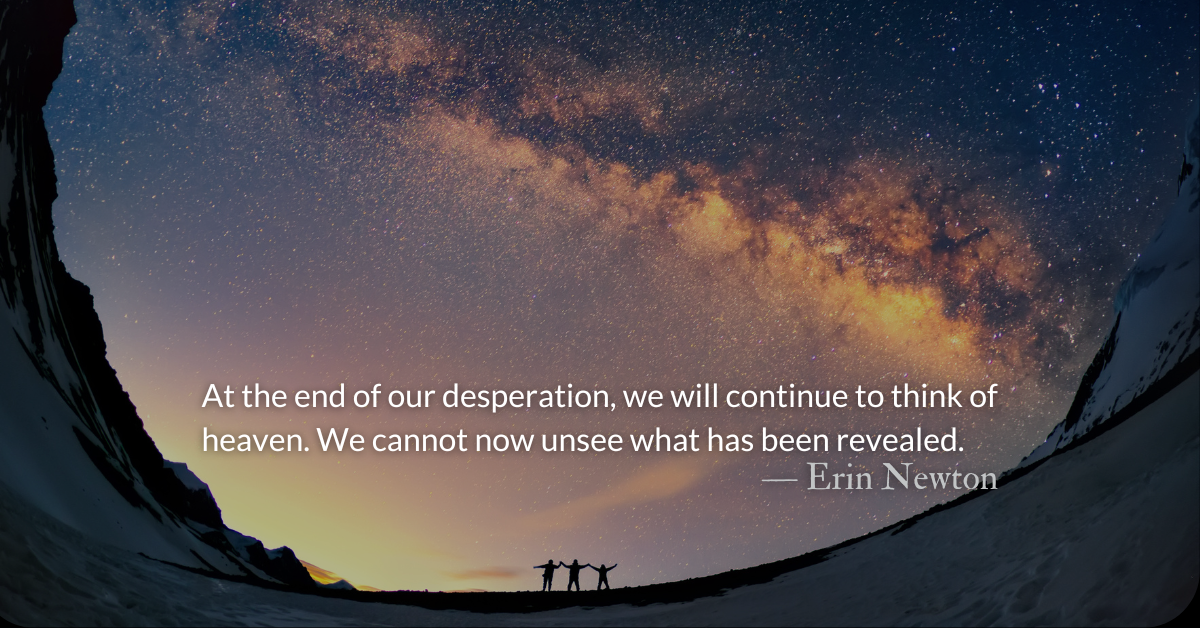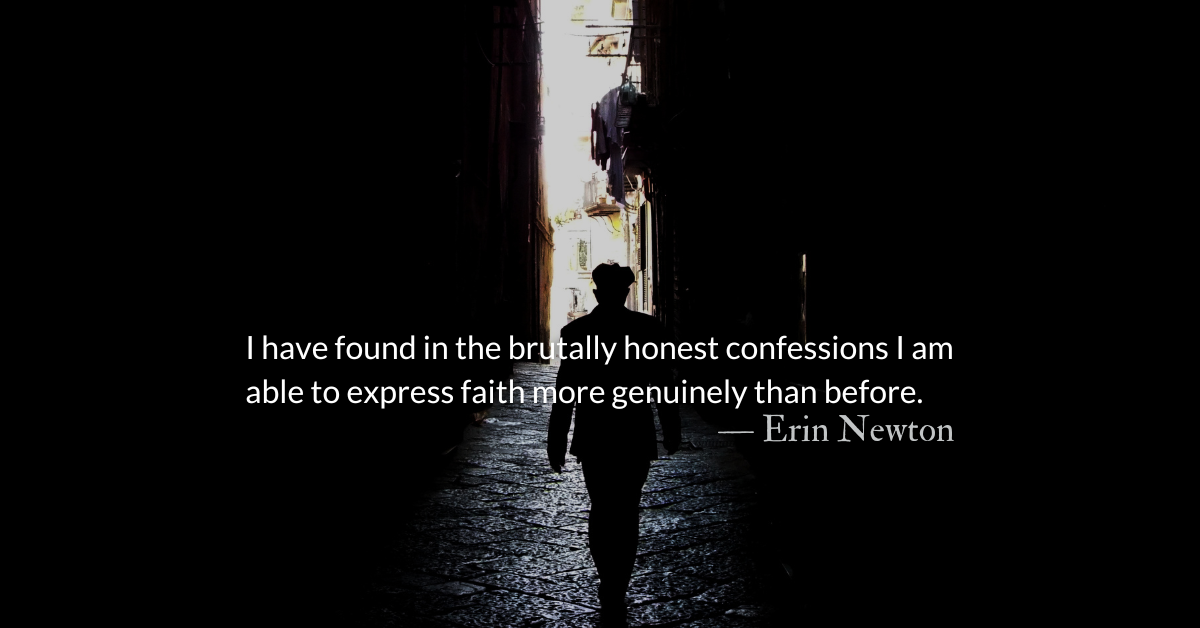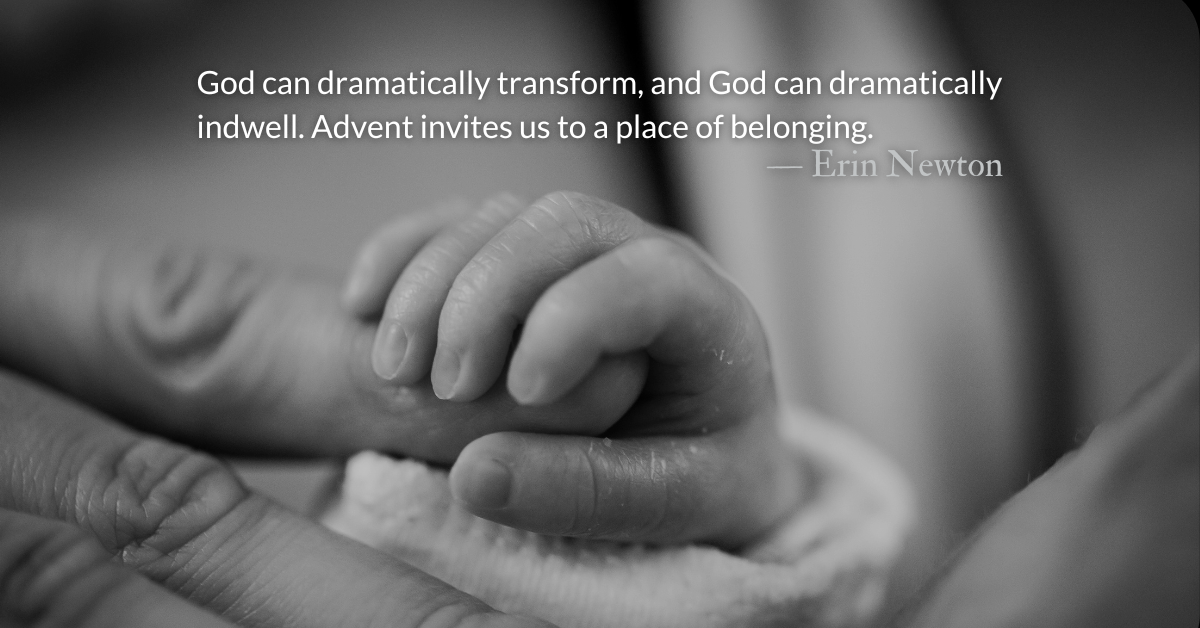Scripture Focus: Job 26:14
14 And these are but the outer fringe of his works;
how faint the whisper we hear of him!
Who then can understand the thunder of his power?
Reflection: Fringes of Creation
By Erin Newton
In a recent lecture, I heard Diane Langberg speak about the mental and emotional weight of constantly counseling those in grief. When asked how she handles the psychological toll of such heaviness, she said one thing she does is reconnect with nature by getting out into the garden and planting flowers.
What hope is gained by looking out the window at birds near a feeder or gazing up to name the constellations in the starry night? How is it that creation can feed the soul and bring a downcast spirit a momentary reprieve? The words of Job hint at this phenomenon. He calls us to consider creation as we try to understand the mysteries of our suffering.
Looking across the stormy ocean, there is a certain hue of blue-green that is only shown in the tossing of waves. “He wraps up the waters in his clouds.” The skies that settle into a dark gray as the air begins to mist and you can smell rain is on the way—this is done through the hands of God.
Even in the calm mornings near the lake, where the fog clings to the silent motionless waters. There is a calm serenity that creation exemplifies for us each day. “He marks out the horizon on the face of the waters.” It is within reach but often outside our present focus.
The binding of the waters, the limitations of the darkness, the stillness of the sea—all of these speak of the power of God. For Job, it is just the fringe of God’s work.
The mythic dragon that lives in the primordial sea—Rahab, the gliding serpent—has been silenced by the hand of God. The spirit which hovered over the waters is the spirit that split the Red Sea. “By his breath the skies became fair.”
God’s power calmed chaos and brought order. God’s power provided a way through the waters and into deliverance. This is the fringe of God’s works that Job and his friends long to understand.
But just as innocent suffering seems to reside outside our ability to understand, so does the magnitude of God’s power. Reaching down into the dirt, looking out across the valleys, exploring the depths of caves, and climbing above the tree line onto snowcapped mountains—this momentary pause to look at the fringes of his works is one place we find respite in our suffering.
Divine Hours Prayer: The Call to Prayer
Let us make a vow to the Lord our God and keep it; let all around him bring gifts to him who is worthy to be feared. — Psalm 76.11
– From The Divine Hours: Prayers for Summertime by Phyllis Tickle.
Today’s Readings
Job 25-26 (Listen 1:52)
Psalm 5-6 (Listen 2:45)
Read more about Tense Conversations
“Tension” is a good word for the dialogues between Job and his friends. The greatest tension is the conflict between how each person views the world.
Read more about Supporting Our Work
We can publish free biblical resources with the support of donors just like you. Please consider becoming a donor and supporting our ad-free content.











